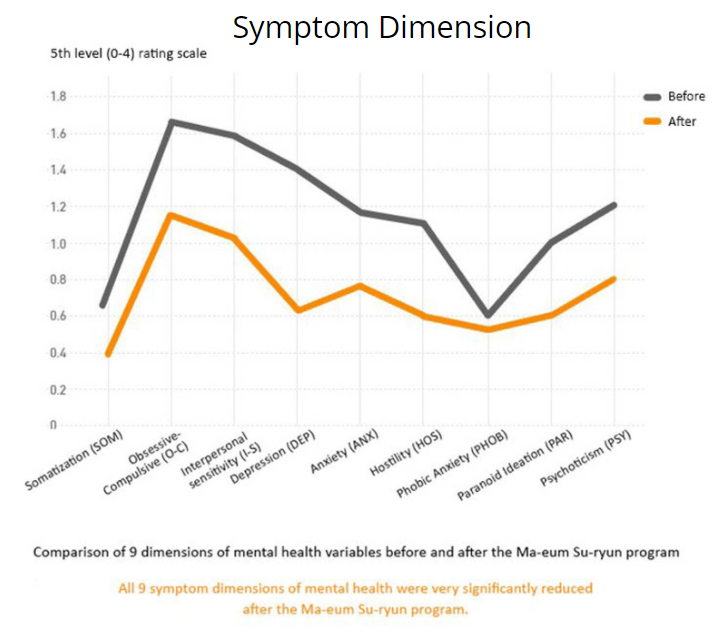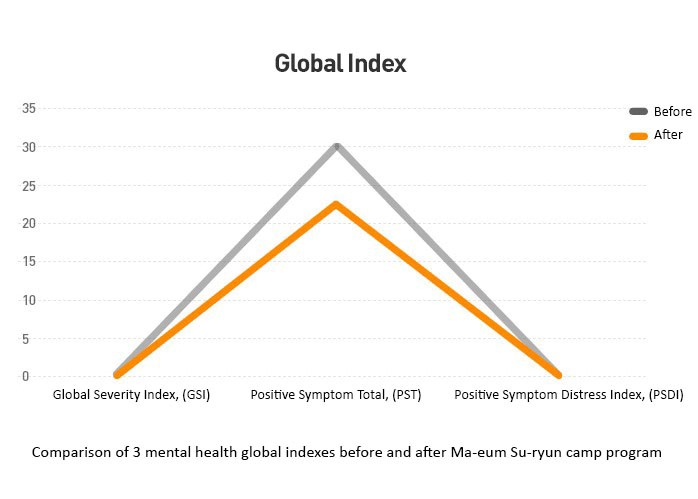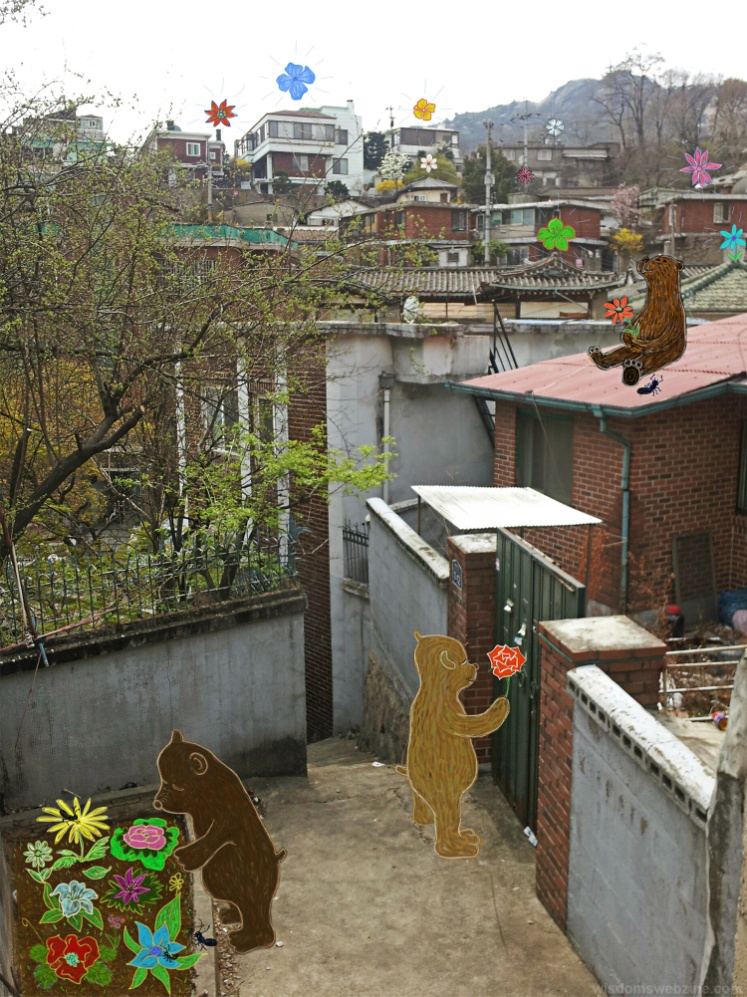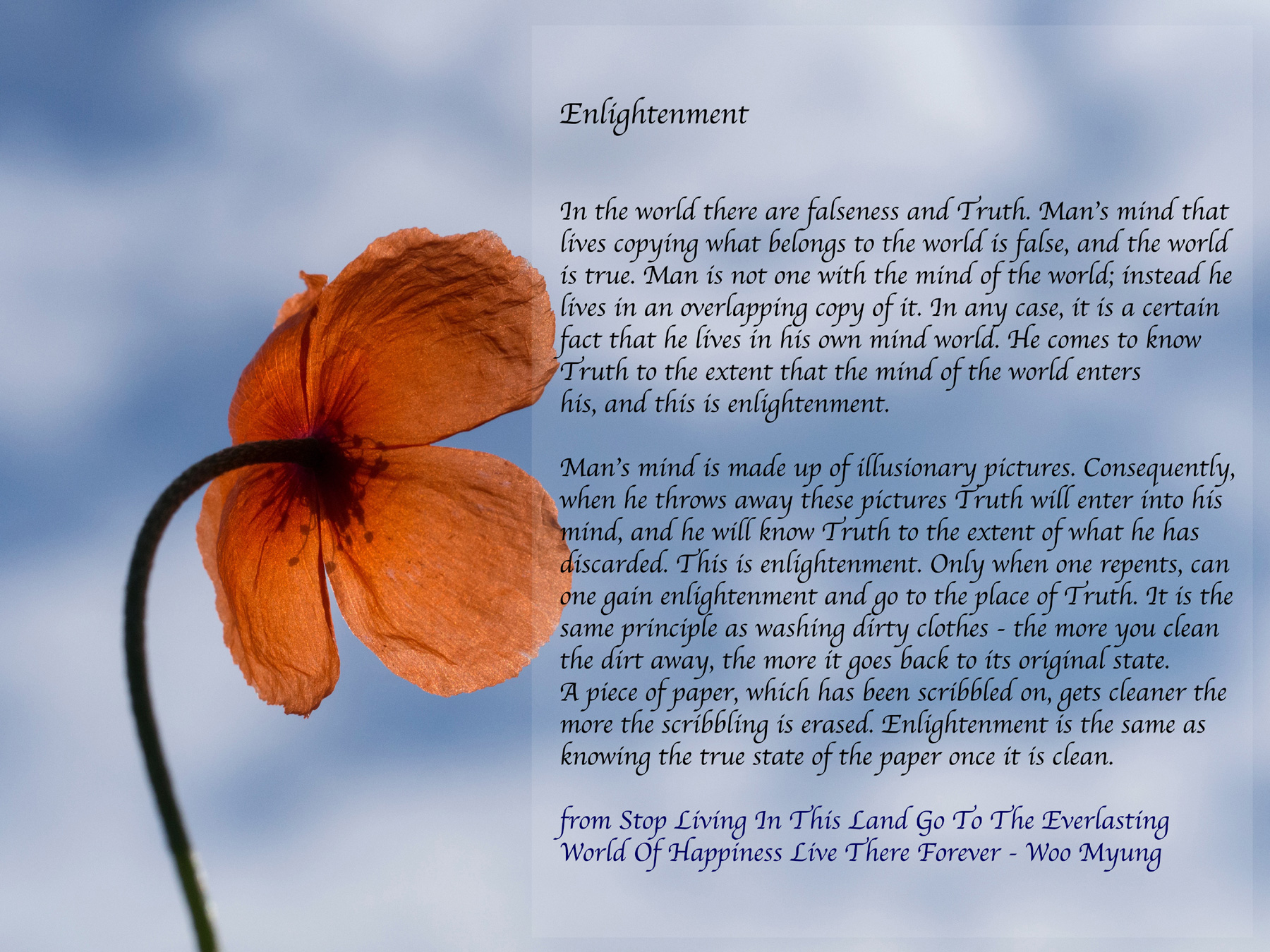Researchers
Kim, M. H. Professor, Dept of Nursing, Kyung-il University
Lee, I. S. Professor, Emergency medicine, Korea Transportation University
Yoo, Y. K. Lecturer, Dept of Nursing, Kunsan University
Publisher Journal of Human Completion Vol. 5.
Published Year 2013
A report by South Korean National College Life Research Center found that many college students have body image issues along with relationship problems, test anxiety, graduation anxiety, isolation, drug and alcohol abuse, smoking, and other psychiatric and psychological problems.
In a recent report on college students by a college, 69% of participants felt despair or severe sadness with 72.8% admitting recent suicidal ideation at least once, which demonstrate a very severe level of mental health issues among those students.
A 2010 report by South Korean Psychological Association also showed happiness index score of 56 for college students which was lower than the average of 63.22 in the adult population. This study examined the effect of the Ma-eum Su-ryun college camp program, as a follow-up to Kim’s previous study on Ma-eum Su-ryun’s effect on improving self-esteem, depression, anxiety, and stress (2009). This study results again confirmed that the camp program improved mental health and increased a sense of happiness.
Study purpose
1) To investigate the effect of Ma-eum Su-ryun camp program on mental health of college students
2) To investigate the effect of Ma-eum Su-ryun camp program on happiness index of college students
3) To investigate the effect of Ma-eum Su-ryun camp program on a sense of happiness in college students
Study design
This research study used one group pre and post-test quasi-experimental design to examine the effect of Ma-eum Su-ryun camp program on mental health, happiness index and a sense of happiness in college students.
Study participants
The study participants were 160 college students who participated in the Ma-eum Su-ryun camp program for 7 nights and 8 days (from Dec 29, 2012 to Jan. 5, 2013) at Nonsan Ma-eum Su-ryun education center.
We received the research study approval from the Ma-eum Su-ryun education center which offered the camp program.
Data collection method
Data were collected via self-administered questionnaires on the first and last day of the camp program. The study investigators and assistants informed the participants on how to complete the questionnaires correctly in order to be consistent in data collection.
Measuring tools
1) Mental health: The Brief Symptom Inventory (BSI) from Symptom Checklist-90-Revision (SCL-90-R) was used to measure mental health variables. This questionnaire consists of 52 questions with 9 symptom dimensions and 3 global indexes to measure psychopathology.
A. 9 Symptom dimensions
- Somatization, (SOM)
- Obsessive-Compulsive, (O-C)
- Interpersonal Sensitivity, (I-S)
- Depression, (DEP)
- Anxiety, (ANX)
- Hostility, (HOS)
- Phobic Anxiety, (PHOB)
- Paranoid Ideation, (PAR)
- Psychoticism, (PSY)
- Additional Items
B. 3 Global Indexes
- Global Severity Index, (GSI)
This represents a grand total of scores of at least one point per questions and indicates the depth of severity.
- Positive Symptom Total, (PST)
A number of questions with at least one point given for symptoms.
- Positive Symptom Distress Index, (PSDI)
This represents a grand total of PST scores (of at least one point per questions) and indicates the depth of severity. PSDI shows increase or decrease in symptom responses.
2) Happiness index: Modified version of Rothwell and Cohen’s (2003) happiness index by Chu (2005) was used.
3) A sense of happiness: Modified version of Argyle and Hills’ (2002) the Oxford Happiness Questionnaire, (OHQ) by Choi (2002) was used.
Ma-eum Su-ryun camp program
This camp program is offered by the Ma-eum Su-ryun for college students and instructed by certified meditation teachers. The length of camp is 7 nights and 8 days with each meditation session of one hour and 30 minutes, 6 sessions per day.
Study results
(1) The Ma-eum Su-ryun camp program was effective in improving mental health in college students.
College students who participated in the Ma-eum Su-ryun camp program showed significant decreases in all of 9 mental health dimensions: Somatization (SOM), Obsessive-Compulsive (O-C), Interpersonal sensitivity (I-S), Depression (DEP), Anxiety (ANX), Hostility (HOS), Phobic Anxiety (PHOB), Paranoid Ideation (PAR) and Psychoticism (PSY). The reason for this could be found in the principle of Ma-eum Su-ryun method. While cleansing memories since birth, the participants threw out sad, anxious or hostile memories, which led to decreases in negative emotions.
Also during the Ma-eum Su-ryun meditation, tension, which was stimulating autonomic nervous system, is released by throwing out one’s thoughts and emotions. This can in turn, improve psycho-somatic symptoms and decrease the interpersonal sensitivity or paranoia thinking.
2) The Ma-eum Su-ryun camp program was effective in increasing happiness index and a sense of happiness in college students.
This study was able to confirm significant increases in happiness index scores and a sense of happiness in college students who attended the Ma-eum Su-ryun camp program. In the camp program, false minds created while living life since birth, are thrown out to discover original self, and this leads to gratitude and forgiveness naturally. Thus, the participants are able to recover their light-heartedness and relaxed facial expressions. Therefore, the Ma-eum Su-ryun method can be utilized as a positive impact strategy for college students’ mental health. We recommend its utilization in diverse student activities including college elective courses and club activities.
Source: www.meditationlife.org







